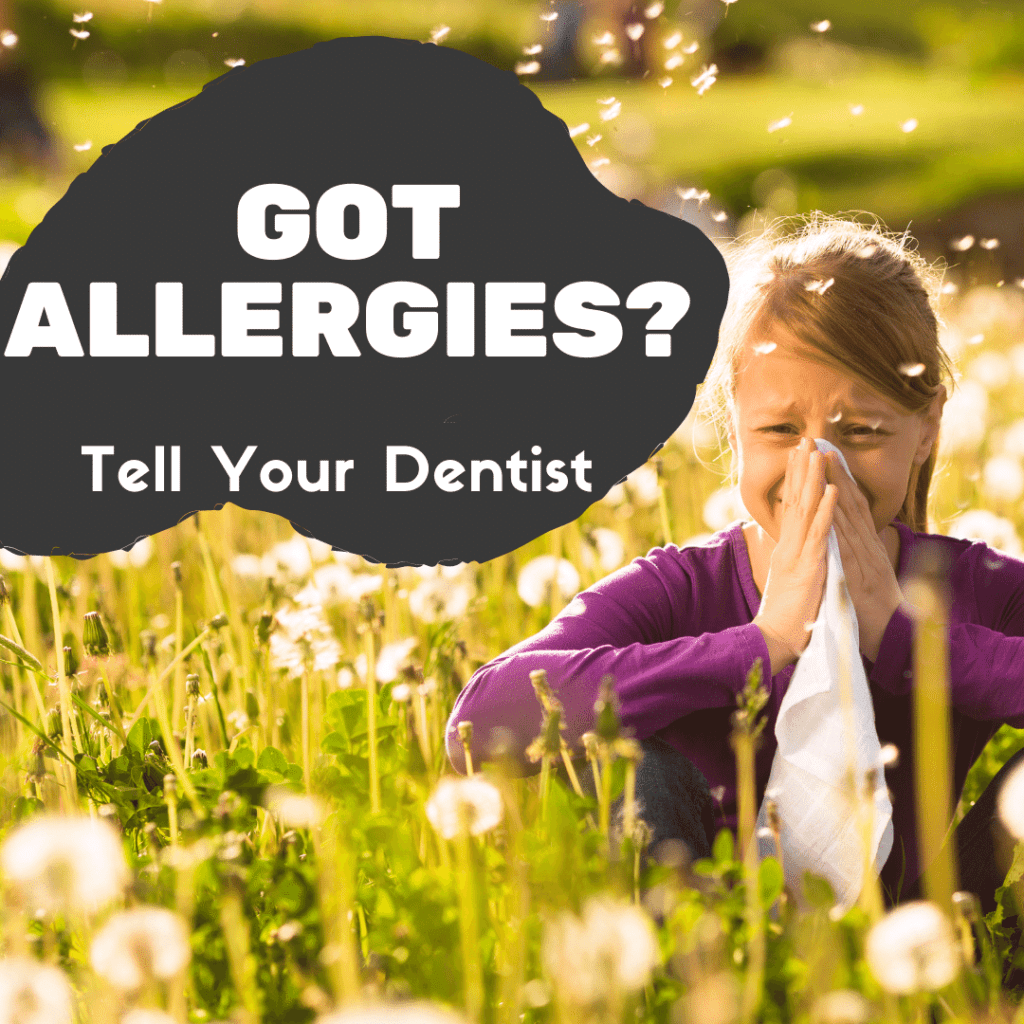Do you have seasonal allergies? Have you ever discussed these allergies with your dentist? Believe it or not, seasonal allergies are something that your dentist should know about. Although you would think that allergies don’t have any effect on your oral health, they can actually affect your oral health in a few key ways. Discussing your seasonal allergies with your dentist can help decrease the likelihood of developing oral health complications caused by allergies. Here are some of the ways that seasonal allergies affect your oral health and how to deal with them:
Tooth Pain

Seasonal allergies can potentially be a cause of tooth pain. During allergy season, your immune system reacts by producing excess mucus. This mucus accumulates within the large sinus cavities that sit on either side of your nose just above the upper jaw. When large amounts of mucus collect in the sinus cavities, this causes pressure to build up. This pressure can push down on the tooth roots, which can cause tooth pain and sensitivity in the upper teeth. Tooth pain caused by sinus pressure can usually be alleviated by taking antihistamines, however pain that continues should be evaluated by your dentist.
Dry Mouth
Dry mouth is another common problem associated with seasonal allergies. It can occur as a result of breathing with one’s mouth open due to a stuffy nose, as well as due to being a side effect of antihistamine medications. While antihistamines work well to dry out nasal drainage caused by allergies, they can also decrease saliva production as well. Dry mouth is problematic to your oral health because of the fact that decreased saliva production means an increase in bacterial populations, which can result in tooth decay or gum disease. To prevent these common dental issues from occurring, it is important to combat dry mouth by stimulating saliva production. This can be accomplished by drinking water frequently, sucking on sugarless candy, and chewing gum that contains Xylitol.
Bad Breath

Bad breath is another problem caused by seasonal allergies. In some cases, bad breath can be caused by dry mouth. In these cases, increased saliva production and brushing your teeth should help to eliminate bad breath. However, bad breath can also be the result of the throat being irritated from post nasal drip. As the mucus collects in the sinuses, it can drip backwards into the throat and collect, causing bad breath. To decrease bad breath due to bacterial accumulation from postnasal drip, try gargling with warm salt water rinse. This helps to decrease the amount of bacteria present in the throat, as well as odors caused by the bacteria. Ultimately, gargling with warm salt water can help to alleviate bad breath due to postnasal discharge.

Dr. Admar holds dual certificates — a Bachelor of Dental Surgery (BDS) in 2010 from India and a Doctor of Dental Surgery (DDS) in 2014 from Canada. He is now a full time practicing dentist in Kamloops where he provides a variety of services. Dr. Admar spends hundreds of hours in continued dental education to stay up to date in cosmetic and implant dentistry and he has achieved several advanced qualifications.


